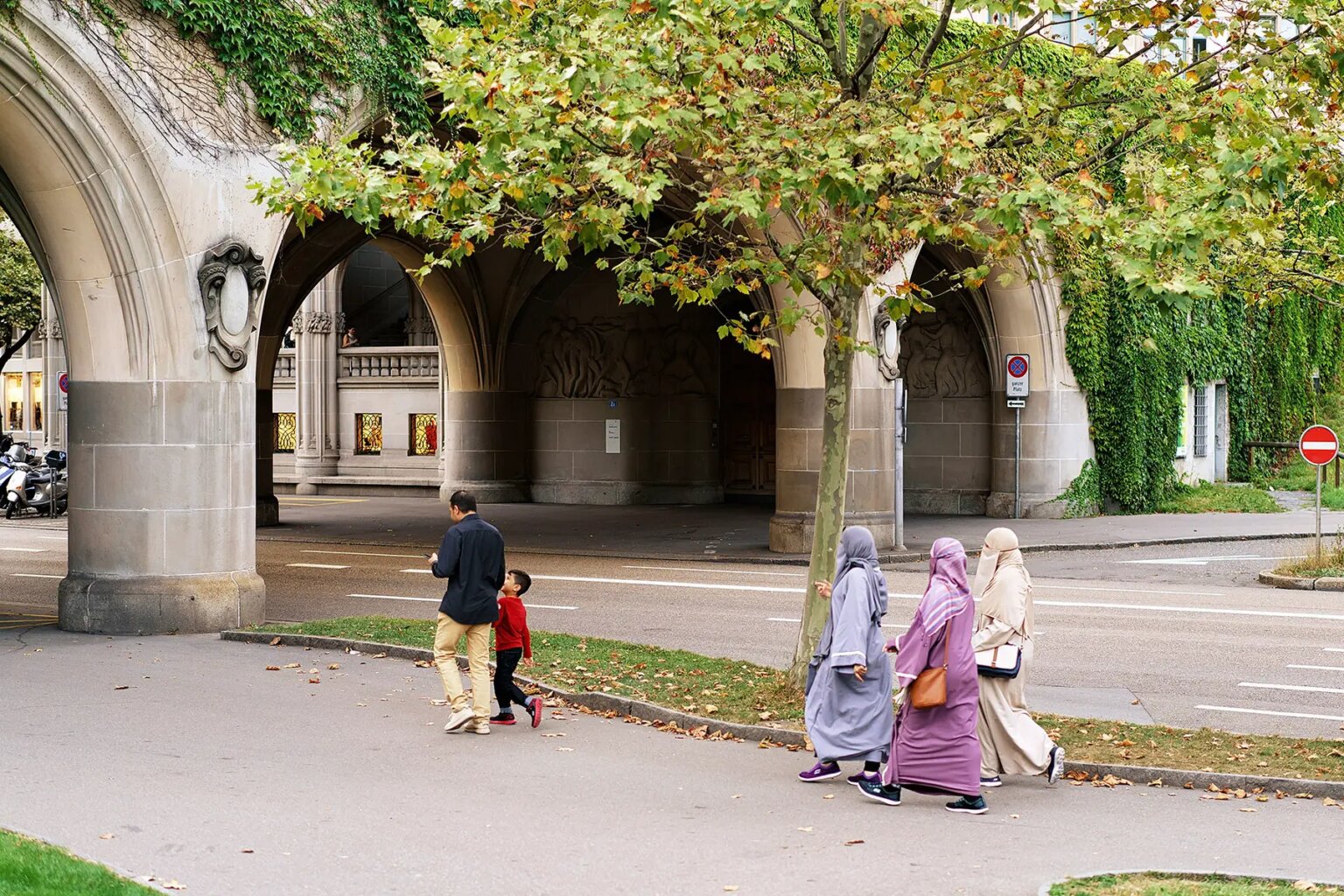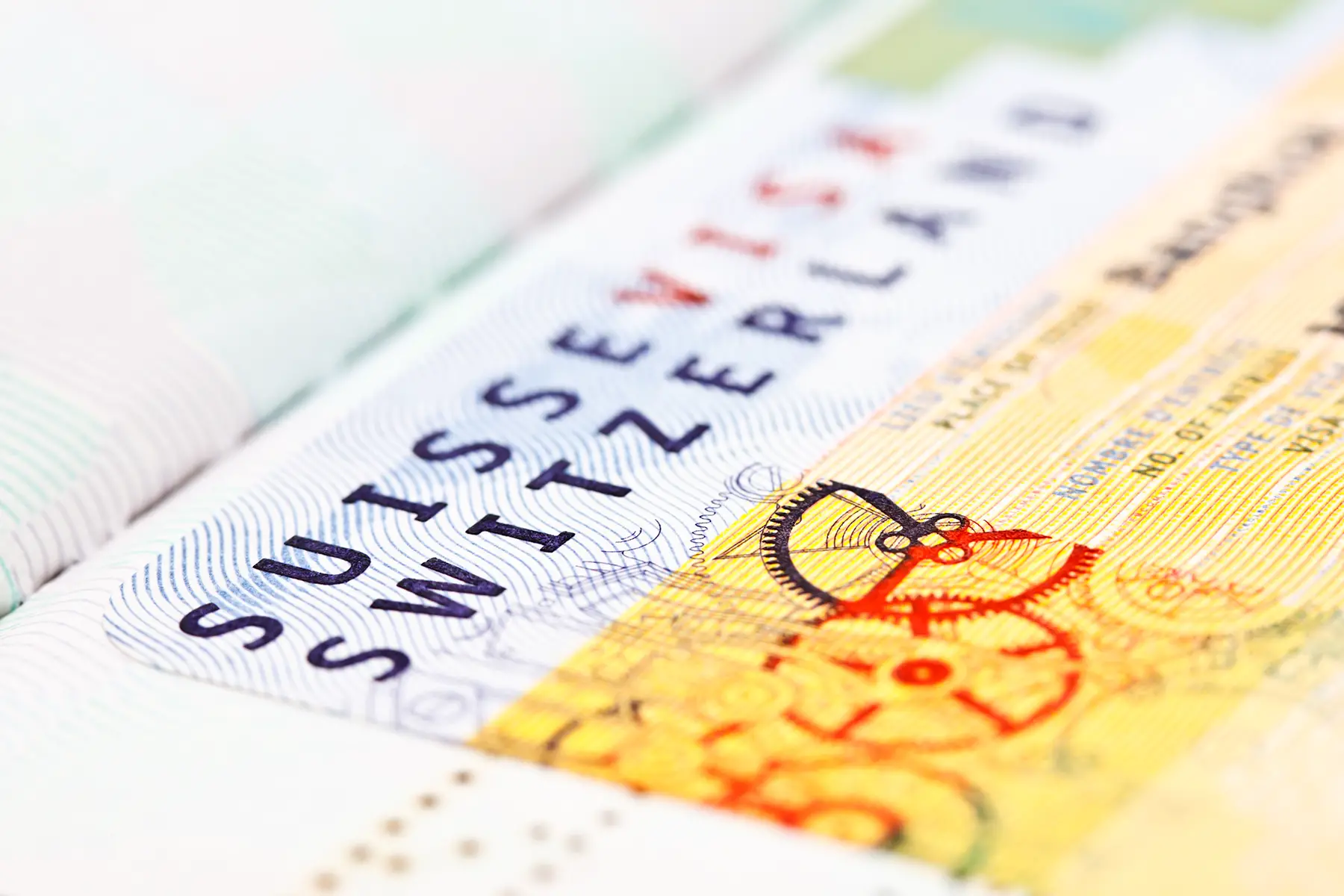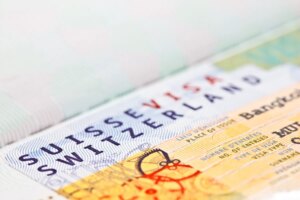If you want to join a relative for family reunification in Switzerland, different rules apply depending on whether you are an EU/EFTA or third-country national.
This guide to family visas in Switzerland covers the following areas:
- Family visas in Switzerland
- Who can move to Switzerland to join family?
- Family visa to join EU/EFTA nationals living in Switzerland
- Family visa to join third-country nationals with a C settlement permit in Switzerland
- Family visa to join third-country nationals with a B or L residence permit in Switzerland
- Short-term visits to family members in Switzerland
- Family visas to join refugees or asylum seekers in Switzerland
- When family members arrive in Switzerland
- In the event of divorce or death of a family member in Switzerland
- Family visa complaints and appeals in Switzerland
- Useful resources
Sirelo
It's no secret that moving abroad can be stressful. Sirelo's team of removal advisers is here to help. They provide five free quotes from international shipping companies so you can find the best options at the best prices. Take the stress out of your relocation to Switzerland with Sirelo.
Family visas in Switzerland
Family reunification in Switzerland is possible if the family member living in Switzerland has the necessary residence rights. However, the process is slightly different depending on where you are from.
You may need a family visa if you want to join a relative or spouse in Switzerland. This is known as the Swiss Family Reunification Visa or Family Reunion Visa. As with most Swiss visas and permits, the State Secretariat for Migration (SEM) is responsible for family reunion visas in Switzerland although the cantonal immigration offices deal with much of the administration.
Who can move to Switzerland to join family?
Who does not need a family visa to move to Switzerland?
Although Switzerland is not part of the European Union (EU), it does form part of the European Free Trade Association (EFTA) together with Iceland, Liechtenstein and Norway. EU and EFTA countries have reciprocal rights, one of which is visa free travel between the countries.
Because of this, EU/EFTA citizens can move to Switzerland to join family members without having to apply for a visa. However, they will need to apply for a Swiss residence permit if they are staying for over three months.
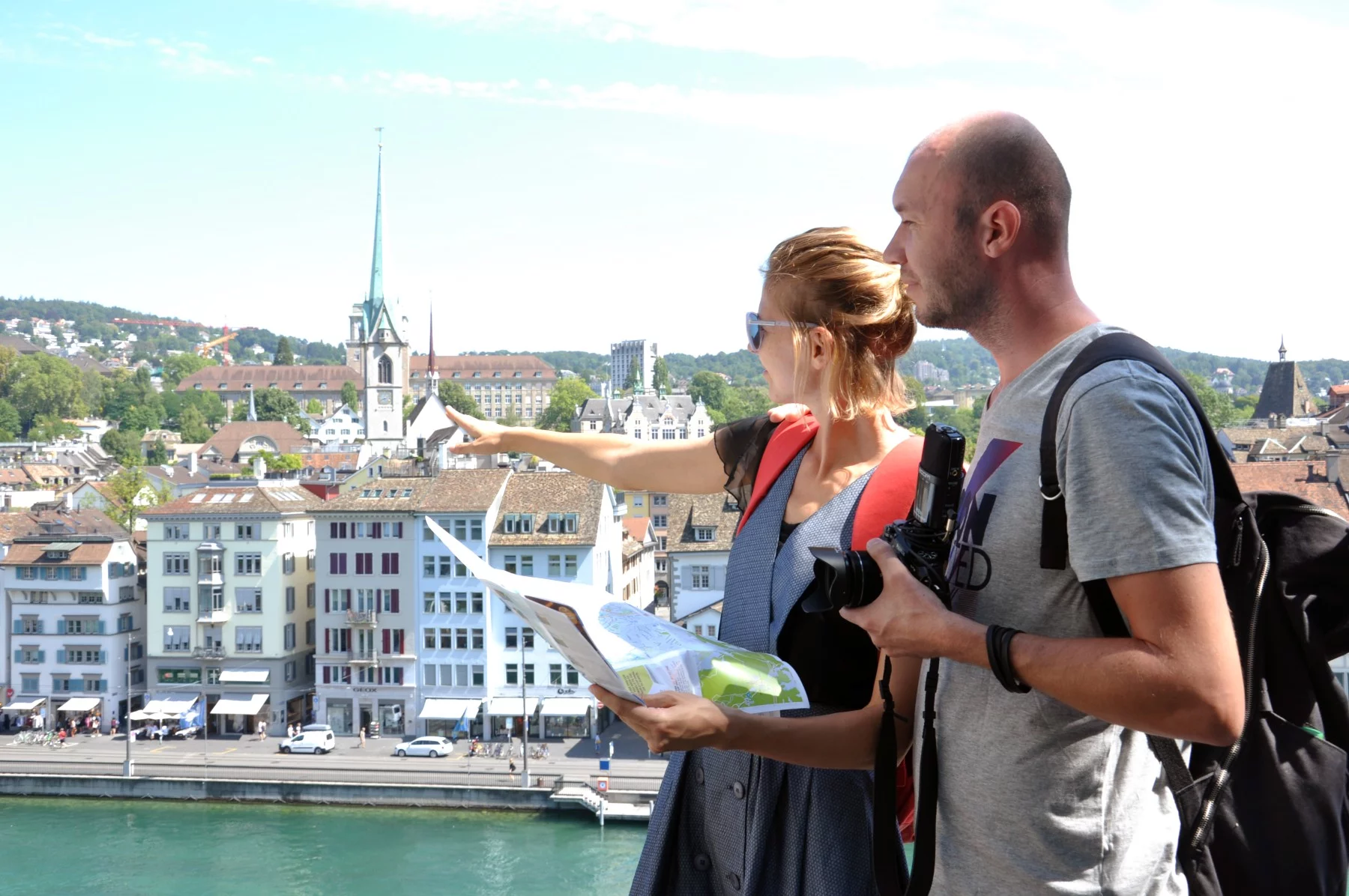
Who needs a family visa to join family in Switzerland?
Third country nationals from outside the EU/EFTA need a family visa to join relatives in Switzerland. The program of family reunification in Switzerland splits into the following parts:
- Reunification for EU/EFTA citizens living in Switzerland, who can bring their spouse/registered partner, children, grandchildren, parents and grandparents. However, you must meet certain requirements (see below).
- Family reunification for third-country nationals with a C settlement permit, who can bring spouses/registered partners and children aged under 18.
- Reunification for third-country nationals with a B or L residence permit. There is no automatic right to join family members, but local cantonal authorities can approve applications on certain conditions (see below).
- Reunion for refugees and asylum seekers in Switzerland
Family visa to join EU/EFTA nationals living in Switzerland
Third-country nationals from non-EU/EFTA countries will usually have to apply for a family visa to enter Switzerland. See our guide to Swiss visas and residence permits for full details on who needs to apply.
Who can apply?
The following relatives can apply for family reunification in Switzerland:
- Spouse or registered partner
- Children or grandchildren aged under 21, or older if they can support themselves financially
- Parents and grandparents if they can support themselves financially
If you are an EU/EFTA citizen in Switzerland on a study visa, you can only be joined by your spouse and dependent children.
Visa length
Family members can stay in Switzerland for as long as the EU/EFTA relative they are joining is a Swiss resident. If you are staying in Switzerland long-term, you will have to get a Swiss residence permit.
Visa entitlements
Spouses/registered partners and children of EU/EFTA relatives can work and study in Switzerland on a family visa. However, access to social welfare depends on the employment situation of the relative you are joining.

There is no national social security scheme in Switzerland. Instead, residents need to take out health insurance that covers any dependent family members. Those who are self-employed or unemployed need to show that they have adequate financial resources to support family members joining them.
Relatives joining EU/EFTA family members in Switzerland have no individual housing rights, so the house or apartment of the family member being joined must be large enough to accommodate the whole family.
How to apply
The third-country national joining the family member needs to make the application for family reunion in Switzerland through the Swiss embassy or consulate in their home country if applying from outside Switzerland, or through the local cantonal immigration authority if applying within Switzerland.
You need to provide the following documentation:
- Valid photo ID such as passport
- Certificate from your home country proving the nature of the relationship, e.g., marriage certificate or birth certificate
- Proof that you will be able to financially support yourself or that the family member you are joining will be able to support you
Applications can take several months to process so it’s advisable to give yourself plenty of time.
Visa costs
Family visa costs in Switzerland are CHF 88. Children aged 6–12 can get the visa for the discounted price of CHF 44. You may be charged extra (up to 50% above the standard price) if you need the visa to be issued urgently or outside of normal working hours. Payment needs to be made along with the application.
Family visa to join third-country nationals with a C settlement permit in Switzerland
Non-EU/EFTA family members will have to apply for a visa to join relatives in Switzerland.
Who can apply?
The following relatives can apply for family reunification in Switzerland:
- Spouses and registered partners
- Children aged under 18
Visa length
Family members can stay in Switzerland for as long as the relative they are joining is a Swiss resident. If you are staying in Switzerland long-term, you will have to get a Swiss residence permit. This will be a B permit, which you can exchange for a C permit if you live in Switzerland for five uninterrupted years. Children under 12 receive a C permit immediately.
Visa entitlements
Family members can work or study in Switzerland but must register with the cantonal immigration and labor market authorities first. If they are not working, they can only access social security and welfare services through the health insurance policy of the relative they have come to join. This needs to have coverage that extends to additional dependent family members.
How to apply
The spouse/partner or child who is joining their relative in Switzerland needs to make the application through the Swiss embassy or consulate in their home country if applying from outside Switzerland, or through the local cantonal immigration authority if applying within Switzerland.
You will need to provide the following:
- Proof of knowledge of the national language in the canton you are moving to (minimum oral level A1) or proof of registration for a language course to meet this requirement
- Valid photo ID such as passport
- Certificate from your home country proving the nature of the relationship, e.g., marriage certificate or birth certificate
- Proof that you will be able to financially support yourself or that the family member you are joining will be able to support you
Be sure to apply several months in advance as applications can take a few months to process.
Visa costs
This visa costs CHF 88, or CHF 44 for children aged 6–12. You may be charged up to 50% extra if you need the family visa processed urgently or outside of normal working hours.
Family visa to join third-country nationals with a B or L residence permit in Switzerland
The Swiss B and L permits are short-term residence permits that allow the holder to move to Switzerland for up to a year. You can renew a B permit annually but you can only renew an L permit for one extra year.
This permit does not grant the holder the automatic right to be joined by family members under family reunification in Switzerland. However, the cantonal migration authorities may allow it if you can prove that you have enough living space for the entire family to live together. You will also need to show that you can support everyone financially if you are self-employed or not working in Switzerland.
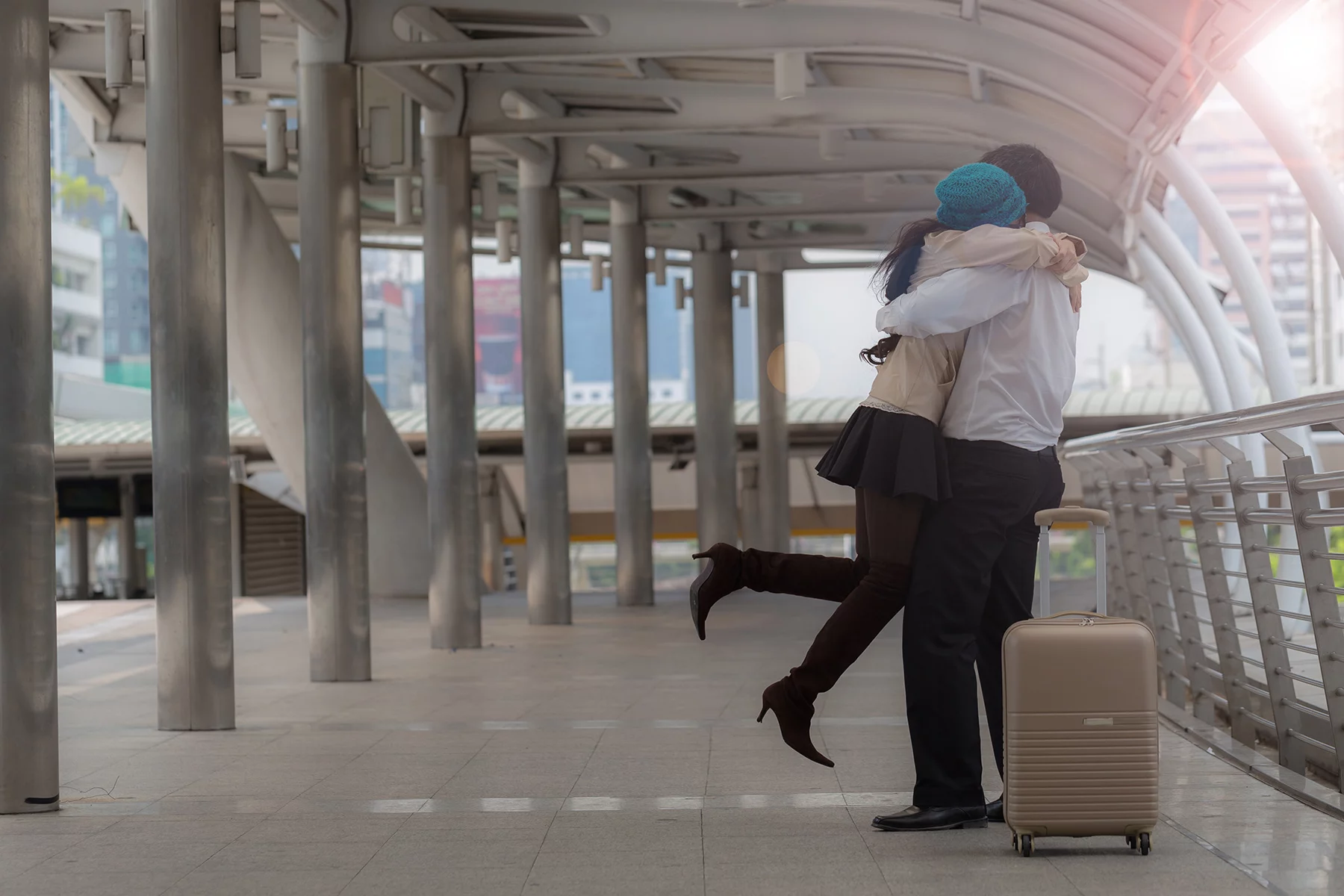
You’ll need to contact the local cantonal authorities in the first instance. If approved, you will be able to bring your spouse/registered partner and any dependent children under 18.
Short-term visits to family members in Switzerland
You can get a short-term Swiss visa to stay with family members if you are from a non-EU/EFTA country. There are two types of short-term family visas in Switzerland:
- Schengen C visa – technically a tourist/short-term visitor visa that allows visits of up to 90 days within a 180-day period. Only residents from certain countries need a visa for visits of 90 days or less. Check the SEM website for individual country requirements.
- National D visa – this is for short-term stays with family for longer than 90 days.
Any family member can apply for a C visa as long as they meet the general requirements. D visas are only available to spouses/registered partners and children under 18 (plus parents, grandparents and grandchildren for EU/EFTA citizens). The visa cost is CHF 88 or CHF 44 for children aged 6–12. The Swiss authorities provide the application forms in a variety of languages.
If you apply for a D visa, you will need a residence permit from your cantonal immigration office if you stay for longer than three months. Read more about the requirements and process in our guide to Swiss visas and residence permits.
Family visas to join refugees or asylum seekers in Switzerland
Asylum seekers are not permitted to be joined by relatives under family reunification in Switzerland. However, those who are granted refugee status can bring a spouse/registered partner and any children under 18.
Refugees granted a B or C permit can be joined by family members immediately. Those with an F temporary permit must wait three years before relatives can apply.
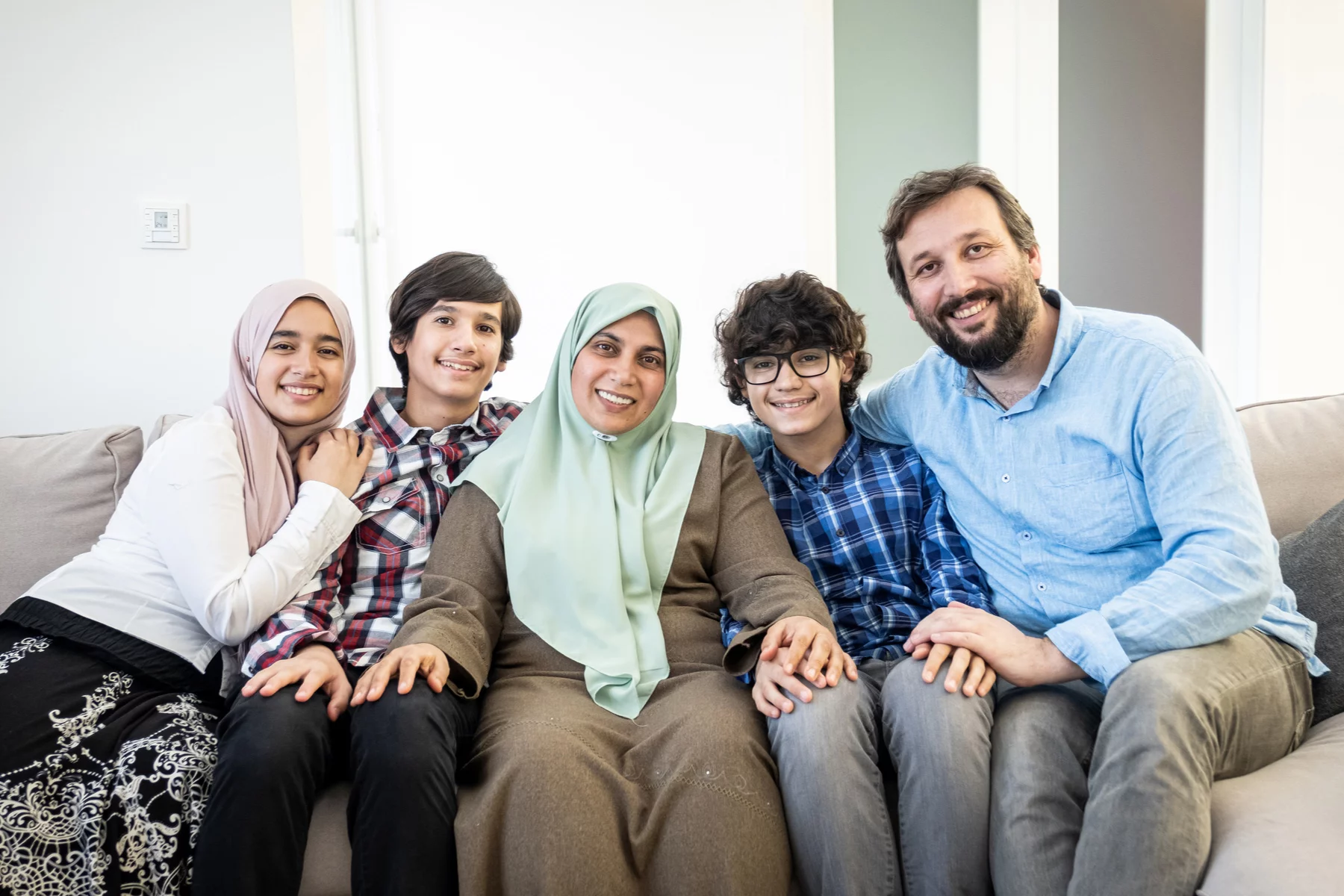
Family members can apply in the same way as for relatives of other B and C permit holders, through either the Swiss embassy or consulate in their home country or the cantonal immigration authority in Switzerland.
Visa costs and document requirements are the same as for B and C permit applications. In addition to this, the local cantons may also apply additional criteria such as minimum language requirements or no serious criminal convictions.
When family members arrive in Switzerland
When you arrive in Switzerland you should register with your new commune of residence with 14 days of your arrival. You will also need to contact your cantonal immigration office to get your residence permit if you are staying in Switzerland for longer than three months.
Other things to consider when you move for family reunification in Switzerland are:
- Registering for Swiss healthcare. You may need to take out your own health insurance if you are not covered by that of your family member.
- Opening up a Swiss bank account.
In the event of divorce or death of a family member in Switzerland
When you have a residence permit type B, then your permit may be extended after a death or divorce if:
- The marriage lasted at least three years in Switzerland
- You all lived together as a family unit
- You have integrated well into Swiss society
- There are any special reasons why you cannot return to your home country (persecution for example)
If you came for family reunification in Switzerland and have a settlement permit C, your right to settle is not affected in the event of death or divorce.
EU/EFTA citizens can apply for their own residence permit in the event of death or divorce, as long as they are either employed or can support themselves financially.
Family visa complaints and appeals in Switzerland
If your application for family reunion in Switzerland is turned down, you have the right to appeal within 30 days of the refusal. You should contact your Swiss embassy or consulate in your home country (if you applied from outside Switzerland) or your cantonal migration authority (if you applied from inside Switzerland).
You will need to clearly explain on what grounds you are contesting the decision. If you are not satisfied with the response, you can take the matter to the SEM, the Swiss authorities who oversee immigration and residence permits in Switzerland. You will need to pay an advance on costs of CHF 200.
If SEM rejects your appeal, your final avenue is the Federal Administrative Court. You should file your appeal within 30 days. Send your appeal along with any supporting evidence to:
Federal Administrative Court
P.O. Box/Postfach
9023 St Gallen
You can find information about submitting your appeal electronically on the Federal Administrative Court’s website.
Useful resources
- State Secretariat for Migration (SEM) – Swiss federal department that oversees matters on immigration and residence
- Swiss Authorities Online – government portal with information in English
- Link to Swiss visa application forms
